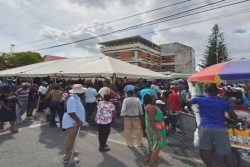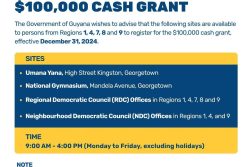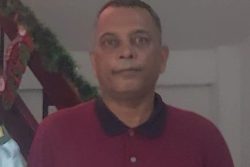CARACAS, (Reuters) – Venezuela’s Congress on Tuesday stripped an opposition deputy of parliamentary immunity over corruption allegations, giving the ruling Socialist Party enough votes to approve President Nicolas Maduro’s request for decree powers.
Maduro says he needs the expanded powers to fight corruption and take on what he calls an “economic war” but critics insist he already has ample power to crack down on graft and that he plans to use decrees to persecute opposition rivals.
Legislator Maria Aranguren said the government trumped up charges of embezzlement and conspiracy to commit a crime against her as part of a witch hunt meant to obtain the last vote it needed.
“I call on the government to at least pretend, don’t be so obvious, at least try to make this process look like” it is about justice, she said, minutes before the vote.
Aranguren can no longer serve in Congress because after having her parliamentary immunitystripped, she will be subject to an investigation by the state prosecutor’s office.
Aranguren was elected on the Socialist Party ticket but joined the opposition last year. Her substitute deputy, whom the opposition calls a government supporter, is expected to vote in favor of the decree powers Maduro requested last month.
Government deputies countered that they were simply following protocol after the chief state prosecutor won approval from the Supreme Court to pursue charges against Aranguren.
The country’s top prosecutor says an investigation turned up signs Aranguren committed irregularities in the management of a state company charged with maintaining a
state-owned stadium, adding the company failed to pay taxes and used the stadium for events that were not part of its charter.
“We are not sentencing anyone. We are following a protocol needed for a trial to continue,” said pro-government deputy Jesus Montilla.
Maduro, who narrowly won elections in April triggered by the death of late socialist leader Hugo Chavez, says the opposition is to blame for soaring inflation and chronic product shortages that he calls a Washington-backed economic war.
Over the weekend Maduro ordered troops to occupy a chain of electronics stores accused of price gouging, creating panic among investors who dumped the country’s bonds on Tuesday.
Chavez won decree powers four times during his 14-year rule, using them to issue close to 200 laws without the approval of Congress, including a controversial land reform measure and an overhaul of the country’s oil industry regulations.





